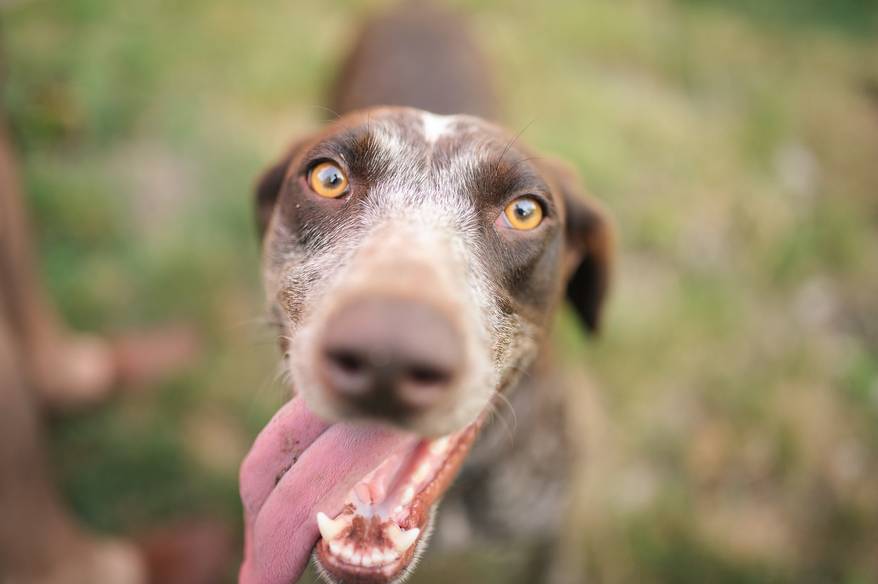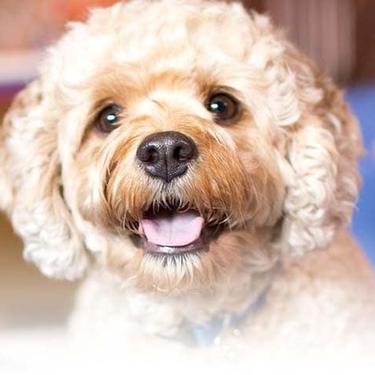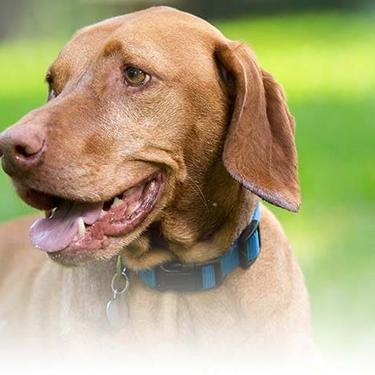
-
Find the right food for your pet
Take this quiz to see which food may be the best for your furry friend.
Find the right food for your pet
Take this quiz to see which food may be the best for your furry friend.
Featured products
 Adult Healthy Cuisine Roasted Chicken, Carrots & Spinach Stew Dog Food
Adult Healthy Cuisine Roasted Chicken, Carrots & Spinach Stew Dog FoodDelicious roasted chicken paired with tender vegetables in a succulent stew
Shop Now Small & Mini Savory Stew with Chicken & Vegetables Dog Food
Small & Mini Savory Stew with Chicken & Vegetables Dog FoodA delicious complement to the nutrition of Science Diet Small & Mini 7+ dog food
Shop Now Adult 7+ Perfect Digestion Chicken, Whole Oats & Brown Rice Recipe Dog Food
Adult 7+ Perfect Digestion Chicken, Whole Oats & Brown Rice Recipe Dog FoodScience Diet's breakthrough nutrition supports ultimate digestive well-being & healthy microbiome for dogs age 7+
Shop NowFeatured products
 Adult 7+ Senior Vitality Chicken & Vegetable Stew Cat Food
Adult 7+ Senior Vitality Chicken & Vegetable Stew Cat FoodImproves Everyday Ability to Get Up & Go
Shop Now Adult 7+ Tender Tuna Dinner Cat Food
Adult 7+ Tender Tuna Dinner Cat FoodWith delicious chunks in a decadent gravy
Shop Now Adult Savory Entrée Can Variety Pack Cat Food
Adult Savory Entrée Can Variety Pack Cat FoodPrecisely balanced nutrition with the delicious taste of savory minced chicken to help fuel the energy needs of cats during the prime of their life
Shop Now -
Dog
- Dog Tips & Articles
-
Health Category
- Weight
- Food & Environmental Sensitivities
- Urinary
- Digestive
- Joint
- Kidney
-
Life Stage
- Puppy Nutrition
- Adult Nutrition
- Senior Nutrition
Cat
- Cat Tips & Articles
-
Health Category
- Weight
- Skin & Food Sensitivities
- Urinary
- Digestive
- Kidney
-
Life Stage
- Kitten Nutrition
- Adult Nutrition
Featured articles
 Why Are Dogs and Cats So Cute?
Why Are Dogs and Cats So Cute?If waggy puppy dog tails and furry kitten yawns make you swoon, you're not alone. Why are cats so cute? And, dogs too! Let's find out!
Read More Do Dogs and Cats have Belly Buttons?
Do Dogs and Cats have Belly Buttons?Learn whether cats & dogs have belly buttons like humans, what the function is, and if there are any health concerns associated with it.
Read More Does My Pet Hate Me?
Does My Pet Hate Me?Learn tips for bonding with your pet if you've ever thought, 'My dog doesn't like me, or 'Why do I have a standoffish cat?'
Read More -


Dog bad breath isn't one of those things that just comes with the territory of owning a dog. Constant halitosis, or bad breath, in dogs can be a sign of minor or major health problems. By understanding the causes of bad breath, you can tame the odor and enjoy those puppy kisses a little bit more.
More Than Just Morning Breath
Bad breath is usually caused by bacteria in the mouth, so all mammals can have bad breath from time to time. Humans wake up, brush their teeth, take a swig of mouthwash, and in most cases, mask the bad breath for the rest of the day. However, most dog owners don't brush their dog's teeth every morning, and when your pup's breath starts to knock you out, you might wonder what course of action you need to take.

Frequent or extreme dog bad breath may be a sign of health issues, so the first thing you should do when you smell very strong odors from your dog's mouth is to take him to the vet and let them examine his teeth. If they notice major tartar buildup, red and irritated gums or excessive drooling that could be a sign of a larger dental diseases, like gingivitis. Systemic disease, like diabetes, liver disease or kidney disease, could be the culprit, notes the American Kennel Club.
While at the vet's office, you may want to discuss the types of treats and food you are giving your dog. Although some toys and treats tout dental health benefits, not all breeds are the same. Some breeds may actually develop worse breath or excessive drooling from certain types of treats and chew toys. Rawhide bones are a perfect example of a treat that many dog owners use without realizing that they may be using the wrong size or giving their dog this treat too often, explains the ASPCA. Only your dog's vet truly knows what dental treats, chew toys, and food are best for your dog's mouth. There are plenty of dog foods out there for everyday oral care that are specially formulated to help clean your dog's teeth as he chews. Sometimes when the issue is caused by some sort of oral disease, your veterinarian might need to prescribe a therapeutic dog food. These types of foods may help improve his overall breath and his oral health.


Tasty Tips
After the Dental Diagnosis
Once your vet determines the cause of your furry friend's bad breath and suggests a treatment, it's important to follow package instructions and the ASPCA's suggestions. If your dog requires getting his teeth brushed, be sure to use that teeth-brushing time to bond, rather than approaching it with frustration or making your dog anxious. Never use human toothpaste to brush his teeth. There are plenty of dog-approved oral care kits to choose from.
Finally, if your dog doesn't have dental disease and just has a flare up of bad breath here and there, you may want to pay closer attention to what he's eating. Certain foods or treats you give him could be upsetting his digestive tract, which would explain the awful smells in his mouth. Also, don't forget that dogs are curious creatures with fewer taste buds than humans, so generally strong smelling items can lure them in for a taste, including dead animals, trash and even their own poop.
Not unlike humans, a nice deep clean can benefit your dog. In these cases, veterinarians can clean his teeth, but this will require putting your dog under local anesthetic. Talk to your veterinarian and get their thoughts to see if your pup's oral health would benefit from this type of deep cleaning.
Proper care and grooming of your dog inside and out is important. By creating and maintaining a healthy meal plan and dental routine, you will keep your pup feeling and smelling better, so you can enjoy more cuddles and hugs without feeling like you're going to pass out from his bad breath.


Chrissie Klinger is an educator, writer and mother of two children, three dogs and three cats. Her dog Jake loves sitting on her lap every chance he gets! She enjoys living an active and eco-friendly lifestyle in rural Pennsylvania.
Related products

Delicious braised beef paired with tender vegetables in a succulent stew

Delicious roasted chicken paired with tender vegetables in a succulent stew

Science Diet's breakthrough nutrition supports ultimate digestive well-being & healthy microbiome for dogs age 7+

A delicious complement to the nutrition of Science Diet Small & Mini 7+ dog food
Related articles

Learn about choosing the right food for your mature or older dog, ensuring he receives the correct balance of nutrition.

Large and giant breed puppies have different nutritional needs than other dogs. Learn how to provide the special care they need to grow up big and strong.

Your dog's coat and skin are a big part of your dog's overall health. Ensure you keep your dog's coat healthy, by following these simple tips.

Hill's Science Diet Small & Toy Breed dog foods are designed to meet the nutritional needs for your small dog at every life stage. Learn more here.

Put your dog on a diet without them knowing
Our low calorie formula helps you control your dog's weight. It's packed with high-quality protein for building lean muscles, and made with purposeful ingredients for a flavorful, nutritious meal. Clinically proven antioxidants, Vitamin C+E, help promote a healthy immune system.
Put your dog on a diet without them knowing
Our low calorie formula helps you control your dog's weight. It's packed with high-quality protein for building lean muscles, and made with purposeful ingredients for a flavorful, nutritious meal. Clinically proven antioxidants, Vitamin C+E, help promote a healthy immune system.

